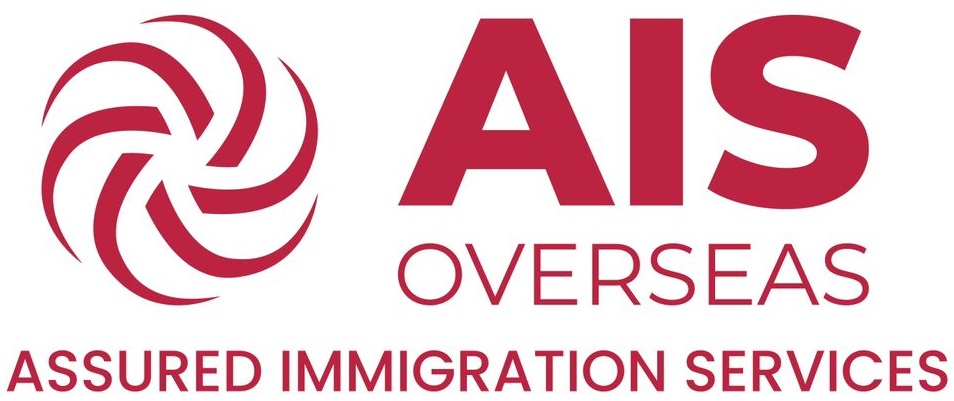
Work in Canada as a Skilled Tradesperson
Are you a tradesperson with a background in construction, maintenance, HVAC, cooking, baking, plumbing, electrical, or manufacturing work? Tradespeople from all around the world are invited to work and reside in Canada through the Canada Federal Skilled Trades Program. This is your chance to take advantage of the shortage of tradespeople that Canada, one of the most developed nations in the world, is experiencing. AIS Overseas can support you at every stage of the application process and help you determine how you approach this program.
Canada Federal Skilled Trades Program Details
For skilled individuals who wish to get permanent residency due to their qualifications in a skilled trade, there is the Federal Skilled Trades Program. You are in an excellent position to apply for the FSTP Program as long as you can meet the minimal eligibility standards and the work requirements for that skilled trade as stated in the National Occupational Classification. This program's salient characteristics are:
- Receive an invitation from IRCC for as little as 199
- Over 100 approved professions and trades
- To join the pool, applicants do not need to provide documentation of their educational attainment.
- Great opportunity to apply to permanently reside and work in Provinces like Ontario, British Columbia, Saskatchewan, and Manitoba.
Documents Required
The following documentation is needed for the Canada Federal Skilled Trades Program:
- Current passport and itinerary history
- Fulfill the necessary language proficiency requirements
- Must have worked in your trade for at least two of the previous five years.
- Your line of work needs to be included in the National Occupation Classification list.
- Although it's not a prerequisite, obtaining a Canadian education or a comparable foreign qualification can raise your Express Entry ranking and police clearance certificate
- Additional corroborating documentation
How AIS Overseas Can Help You?
To help your application procedure go more smoothly, AIS Overseas provides end-to-end support. We provide the following services:
- Checklist for immigration documentation
- Finalization of the application processing
- Documentation, forms, and application submission
- Updates and subsequent actions
- Services for job searching
- Relocation and assistance following landing in Canada
AIS Overseas has facilitated thousands of people's employment and overseas relocation. Count on our tried-and-true procedures to guide you through the Canada Federal Skilled Trades Program application process.
Frequently Asked Questions
Through Express Entry, the application processing body for three economic immigration programs:
- Federal Skilled Trades Program [FSTP]
- Canadian Experience Class [CEC]
- Federal Skilled Worker Program [FSWP]
To boost your chances of getting invited to apply for Canada PR - When in the Express Entry pool, lodge an Expression of Interest [EOI] with provinces/territories that are part of the Provincial Nominee Program [PNP].
Generally, to apply under the FSWP or FSTP, proof of finances is required.
However, no evidence of settlement money is required if the applicant
- Currently has work approval in Canada
- Has a valid job offer from a Canadian company.
Remember that these requirements must be satisfied.
According to the 2016 National Occupational Classification [NOC], all FSTP-eligible occupations require Skill Type B.
A one-year full-time work offer from a Canadian company or a certificate of qualification from a provincial, territorial, or federal governing organization.
The Canadian Language Benchmark delivers a language competency score in either French or English (CLB).
You had to have worked two years or more at a full-time job within the last five years.
You have to be able to prove that you fit the requirements for the position in your specialized profession.
Proof of having enough money to settle you and your family in Canada, unless you have a legitimate job offer or can work there lawfully.
No educational requirement for FSTP.
An applicant wishing to use the Express Entry system to accrue points for his CRS score, even in the absence of any educational qualifications, must submit:
- Proof of education: a certificate, diploma, or degree from a Canadian high school or post-secondary institution
- Foreign-degree holding international applicants are required to submit an Educational Credential Assessment (ECA) report from a CIC-approved organization.
The Canadian federal government uses Express Entry, an online application management system, to handle applications for permanent residence from skilled professionals who wish to settle in Canada.
The Federal Skilled Trades Program, also known as just the FSTP, is one of Canada's three economic immigration programs that use the Express Entry system.
The Federal Skilled Worker Program is referred to here as FSWP. Skilled work experience in technical, administrative, or professional positions as well as in skilled crafts will be necessary to qualify for the FSWP. These kinds of professions would be classified as Skill Type 0, Skill Level A, or Skill Level B in the National Occupational Classification (NOC).
The Federal Skilled Trades Program (FSTP), on the other hand, is intended for people who wish to become permanent residents of Canada due to their skill-related qualifications.
According to the NOC, skilled trades eligible to apply for a Canada PR visa under the FSTP are:
-
Trades related to industry, electricity, and construction (NOC: Major Group 72)
-
Trades involved in equipment operation and maintenance (NOC: Major Group 73),
-
Technical jobs and supervisors in agriculture, natural resources, and other industries (NOC: Major Group 82)
-
Central control operators and processing, manufacturing and utilities supervisors (NOC: Major Group 92),
-
Chefs and cooks (NOC: Minor Group 632)
-
Butchers and bakers (NOC: Minor Group 633).
Quebec has its own immigration schemes and has more autonomy in choosing newcomers. Neither the Provincial Nominee Program nor the federal Express Entry scheme include Quebec. You should research the Quebec immigration options offered if you intend to settle in Quebec after receiving your Canada PR visa.
Yes. You will be asked where in Canada you intend to live after receiving your Canada PR visa while creating your Express Entry profile. It is not required of you to relocate to that territory or province.
However, you will have to relocate to the province or territory that nominated you if you obtain your Canada PR visa through Canadian PNP.
The minimum CRS (Comprehensive Ranking System) score required for a Canadian Permanent Resident application is 467 points. This score is determined by a number of factors, including the candidate's age, education, and work history. Despite the seemingly high minimum score, it's crucial to keep in mind that the CRS is a very competitive scoring system.


